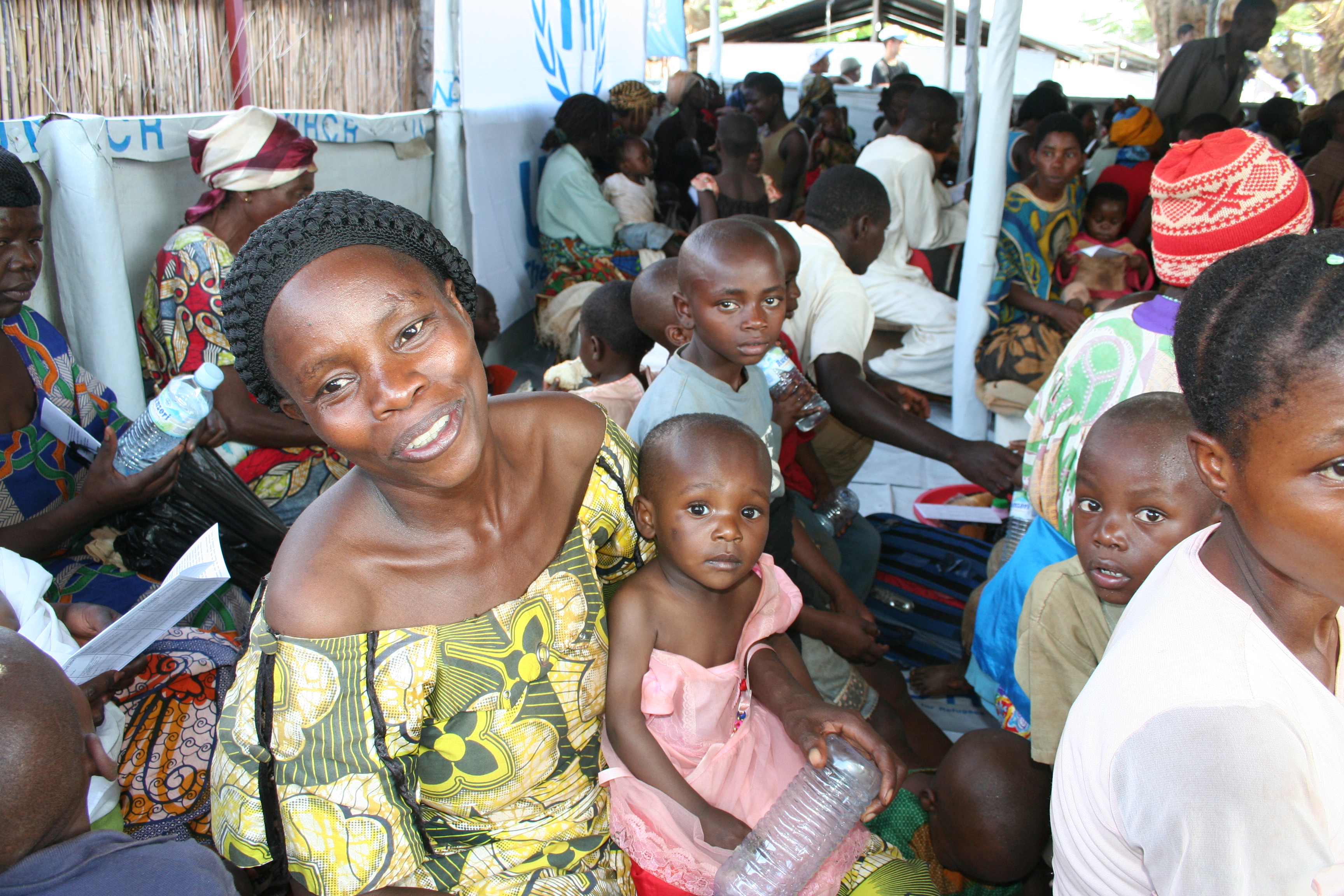UNHCR resumes repatriation of Congolese refugees from Burundi
UNHCR resumes repatriation of Congolese refugees from Burundi

KINSHASA, Democratic Republic of the Congo, November 1 (UNHCR) - The UN refugee agency has resumed the assisted repatriation of Congolese refugees from Burundi to South Kivu province after a hiatus of more than two years due to insecurity.
A first group of 173 Congolese left the transit centre of Songore in northern Burundi early last Thursday and crossed the border at Gatumba some five hours later. They are among some 1,000 civilians who, encouraged by improving security, have said they wish to return to their home areas in South Kivu.
Last week's return convoy came under an agreement signed last December between UNHCR and the governments of the Democratic Republic of the Congo (DRC) and Burundi. Return convoys will be organized on a weekly basis and UNHCR plans to facilitate the return of up to 12,000 Congolese refugees to DRC by the end of next year.
Those trucked back to South Kivu last week had been staying in the Gasorwe refugee camp and most wanted to go to Uvira and Fizi districts.
"I am so happy and proud to be back home and to see that our country is getting back on its feet," Faradja Mariam, a mother of six, told UNHCR at the border. "I was tired of depending on humanitarian assistance in the refugee camp. I'm returning to the DRC to ensure a better future for my children," added the 51-year-old widow, who fled to Burundi in 2002 and was returning to Uvira.
Another returnee, 37-year-old Tamali Nyota, said she wanted to use the skills she had learned while helping young children in Burundi. "At Gasorwe, I was helping as an aide at the kindergarten," she said, adding: "This is what I want to do now that I am back in my country. I want to help children build their lives."
Faradja, Tamali and the other returnees will receive an aid package to help them rebuild their lives, but they will face many challenges ahead in a volatile region. Insecurity in South Kivu interrupted UNHCR's earlier assisted repatriation operation, which saw 1,500 Congolese refugees go back to the province from Burundi from the end of 2006 to mid-2007.
After crossing the border, the returnees were taken to Kavimvira transit centre in Uvira, where they were offered a hot meal and were given food rations for three months and basic shelter and household items, including plastic sheeting, blankets, kitchen sets, jerry cans, soap and mosquito nets as well as seeds and agricultural tools. They will receive free medical care for six months.
UNHCR also works closely with local authorities and support groups to help ease the reintegration of returning refugees, including funding infrastructure and income-generation projects. The refugee agency also helps internally displaced people who have returned to their homes.
Burundi is hosting more than 28,000 Congolese refugees, with some 20,000 in camps such as Gasorwe and the rest living in the capital city of Bujumbura.
By Celine Schmitt in Kinshasa, Democratic Republic of the Congo and Hugues van Brabandt in Bujumbura, Burundi.








